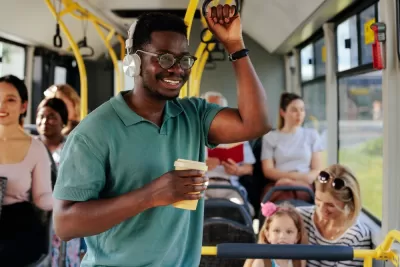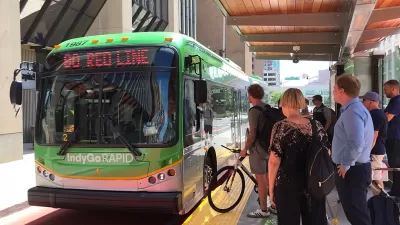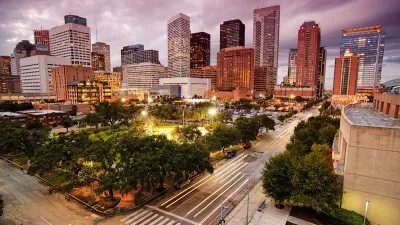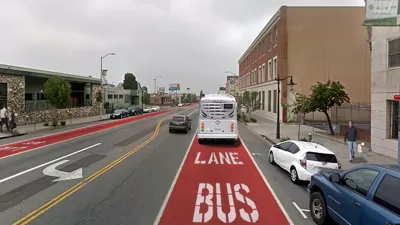The solution to making public transit better doesn’t lie in technological innovations or hyper-modern trains, but in investing in one of its simplest tools.

Writing in The Conversation, Nicholas Dagen Bloom sings the praises of the city bus. Unlike more high-tech transit solutions, Dagen Bloom argues that buses are, in fact, “the future of public transit.” Unlike autonomous vehicles or costly tunnels, buses offer an immediate, affordable, and effective way to improve transit access and serve more riders.
While global cities invested heavily in buses in the early part of the 20th century, the United States took a different path, investing instead in the sprawling national highway system as more Americans gained access to car ownership. “Between 1945 and 1960, U.S. transit companies and agencies typically lost half or more of their riders as white Americans moved to urban fringes or suburbs and became car commuters.”
For Dagen Bloom, “buses are the most likely option for substantially expanding public transit ridership in the U.S. Millions of Americans need affordable public mobility for work, study, recreation and shopping,” pointing to the high cost of car ownership, which can be a significant burden on low-income households. Dagen Bloom highlights examples of U.S. cities that have made improvements to their bus systems in recent decades including Indianapolis, where a fairly extensive bus rapid transit system is taking shape. Dagen Bloom believes buses can be affordable and effective, but only if governments recognize their value and invest in their bus systems.
FULL STORY: Why the humble city bus is the key to improving US public transit

Alabama: Trump Terminates Settlements for Black Communities Harmed By Raw Sewage
Trump deemed the landmark civil rights agreement “illegal DEI and environmental justice policy.”

Study: Maui’s Plan to Convert Vacation Rentals to Long-Term Housing Could Cause Nearly $1 Billion Economic Loss
The plan would reduce visitor accommodation by 25% resulting in 1,900 jobs lost.

Planetizen Federal Action Tracker
A weekly monitor of how Trump’s orders and actions are impacting planners and planning in America.

Wind Energy on the Rise Despite Federal Policy Reversal
The Trump administration is revoking federal support for renewable energy, but demand for new projects continues unabated.

Passengers Flock to Caltrain After Electrification
The new electric trains are running faster and more reliably, leading to strong ridership growth on the Bay Area rail system.

Texas Churches Rally Behind ‘Yes in God’s Back Yard’ Legislation
Religious leaders want the state to reduce zoning regulations to streamline leasing church-owned land to housing developers.
Urban Design for Planners 1: Software Tools
This six-course series explores essential urban design concepts using open source software and equips planners with the tools they need to participate fully in the urban design process.
Planning for Universal Design
Learn the tools for implementing Universal Design in planning regulations.
Caltrans
Smith Gee Studio
Institute for Housing and Urban Development Studies (IHS)
City of Grandview
Harvard GSD Executive Education
Toledo-Lucas County Plan Commissions
Salt Lake City
NYU Wagner Graduate School of Public Service





























